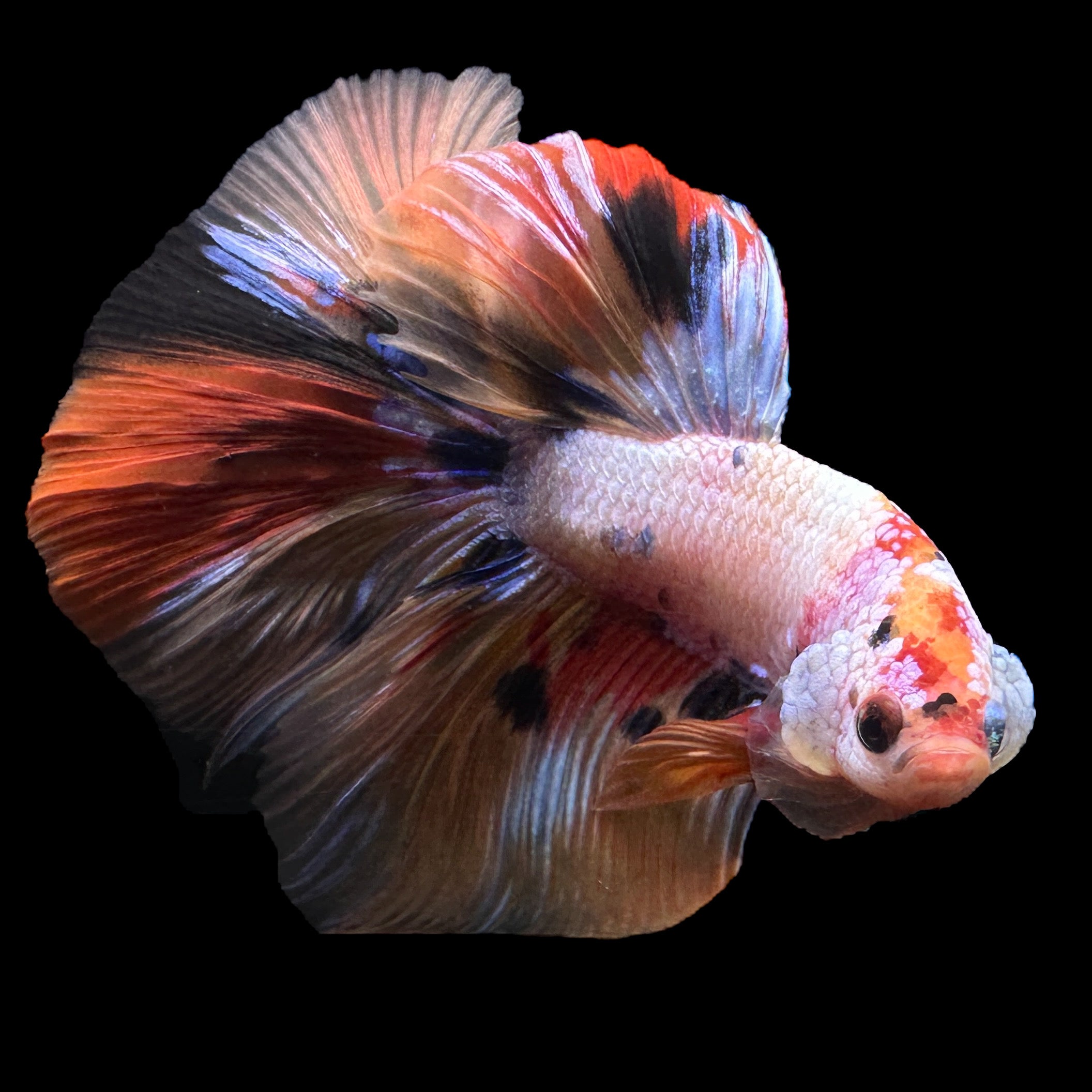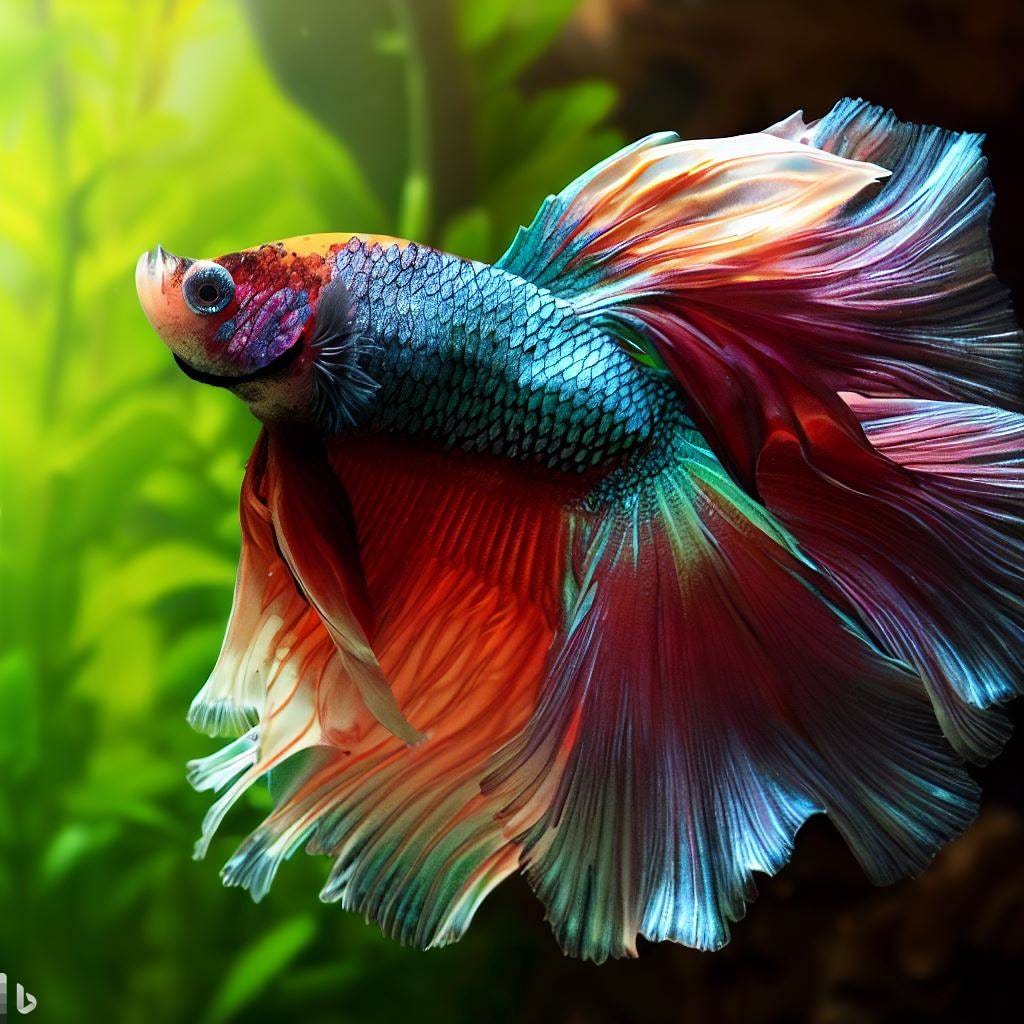Betta Fish Diet Regimen: What to Feed Your Betta for Optimum Health And Wellness
Betta Fish Diet Regimen: What to Feed Your Betta for Optimum Health And Wellness
Blog Article
Everything About Betta Fish: Comprehending Their One-of-a-kind Demands, Habits, and the very best Practices for Optimum Care
Comprehending the one-of-a-kind requirements and actions of Betta fish is important for any kind of aquarist looking to provide optimum treatment. betta fish. As we explore these components additionally, the effects for both novice and knowledgeable fish caretakers become increasingly obvious, increasing concerns concerning just how ideal to suit these remarkable fish in our homes.
Betta Fish Overview
Although frequently appreciated for their vivid shades and moving fins, Betta fish, medically called Betta splendens, are complex creatures that call for particular care to flourish. Originating from Southeast Asia, these freshwater fish are recognized for their territorial nature and special behaviors. Betta fish exhibit sex-related dimorphism, with males displaying extra brilliant shades and longer fins than ladies.
Their hostile propensities, particularly among men, demand mindful consideration when real estate them. Bettas are usually maintained in single-specimen storage tanks to protect against territorial disagreements. Nevertheless, they can exist together quietly with certain suitable species in bigger community tanks, offered the atmosphere fulfills their requirements.

To make certain ideal care, aquarists should understand their distinct behavior traits, nutritional requirements, and environment requirements. betta fish. With proper interest, Betta fish can show their dynamic personalities and prosper in a well-kept fish tank setting
All-natural Habitat and Setting
Betta fish grow in a diverse variety of all-natural environments, mostly discovered in the shallow waters of Southeast Asia, consisting of rice paddies, swamps, and slow-moving streams. These settings are defined by cozy temperature levels, typically in between 75 ° F and 82 ° F(24 ° C and 28 ° C ), and a pH level ranging from 6.5 to 7.5, which is suitable for their health and wellness and well-being.
In their all-natural environments, Betta fish are accustomed to dense plants, giving both sanctuary and reproducing premises. The visibility of plants such as drifting water lilies and thick yards not just uses protection from predators yet additionally adds to the oxygenation of the water, which is vital for their respiratory demands. Additionally, these atmospheres frequently have areas of still water, enabling Betta fish to exhibit their natural habits such as bubble nesting.
Comprehending the natural habitat of Betta fish is vital for aquarium fanatics. Duplicating these conditions-- with water temperature, pH balance, and the inclusion of real-time plants-- can dramatically improve the overall health and longevity of these captivating fish, guaranteeing they flourish in a home fish tank setting.
Social Habits and Communications
Comprehending the social habits and communications of Betta fish is necessary for successful aquarium monitoring. Betta fish, or Siamese combating fish, are known for their unique behavioral characteristics, identified largely by territoriality and aggressiveness.
Conversely, female Bettas show less aggressive habits and can coexist in groups, called sororities, if presented properly. It is critical to check their communications very closely, as power structure and prominence can lead to problems. Comprehending the dynamics within a Betta neighborhood is important; establishing concealing areas and ensuring adequate space can reduce aggressiveness.
In enhancement, Betta fish may additionally present interest and social habits in the direction of other varieties. While they can coexist with specific non-aggressive storage tank companions, it is important to select suitable types to prevent anxiety and aggressiveness. Overall, acknowledging these social communications is key to fostering an unified aquarium environment for Betta fish.
Important Treatment Guidelines
Offering proper care for Betta fish is crucial to their health and wellness and health. Routine water adjustments-- about 25% regular-- aid preserve water quality.
Betta fish need an ideal storage tank dimension; a minimum of 5 gallons is suggested to provide sufficient space for swimming and hiding. Consist of designs and plants to create a stimulating environment, yet avoid sharp things that might damage their delicate fins.

Lastly, make sure the container is outfitted with a filter to keep the water clean, however make use of a gentle filter to stay clear of solid currents that can stress the fish. By complying with these crucial treatment guidelines, proprietors can promote a healthy and lively Betta fish.
Common Wellness Issues and Solutions
In the care of Betta fish, awareness of usual wellness problems is vital for maintaining their wellness. One prevalent problem is fin rot, typically triggered by inadequate water high quality or bacterial infection. Signs and symptoms include torn or tarnished fins. To deal with fin rot, boost water conditions and think about making use of a broad-spectrum antibiotic.
One more usual disorder is ich, a parasitical infection characterized by white areas on the fish's body (betta fish). Therapy entails raising water temperature level and including aquarium salt to the storage tank, as this can aid remove the bloodsucker
Swim bladder condition is likewise often observed, causing buoyancy issues. This problem may arise from overfeeding or irregular bowel movements. A fasting period of 24-48 hours, adhered to by a diet plan of blanched peas, can supply alleviation.
Finally, bettas may endure from velour disease, indicated by a gold dust-like look on their skin. Therapy typically needs medicine particularly designed for exterior bloodsuckers, alongside improved container hygiene.
Normal monitoring of water parameters, keeping a clean atmosphere, and giving a well balanced diet are crucial safety nets. By resolving these health and wellness issues quickly, Betta fish can lead much healthier, a lot more vibrant lives.
Conclusion
In summary, successful betta fish treatment requires an understanding of their distinct requirements and behaviors. Offering a suitable setting, consisting of appropriate container dimension and water conditions, is vital for their well-being. Additionally, acknowledging their territorial nature and ensuring appropriate concealing areas can protect against aggressiveness. Normal monitoring of health and wellness and my review here water quality, along with a well balanced diet plan, adds to the durability and vibrancy of betta fish. Adhering to these standards will cultivate a growing water ecological community for these exciting creatures. click to investigate
Report this page